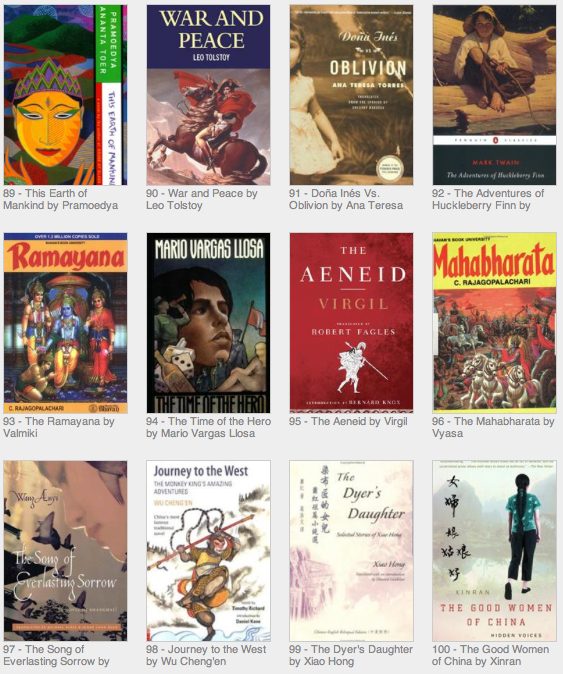I know I'm two weeks late, but I want to say something about the death of Gabriel García Márquez.
I first picked up One Hundred Years of Solitude while I was in the army. I can't remember why I did - probably it was a recommendation from Alfian Sa'at, or something like that. And boy, what a ride that was: following the rise and fall of the Buendía family and their town, Macondo, in an unknown Latin American country where anything could, and frequently did, happen.
That book taught me two things right off the bat:
1) I knew nothing about Latin America. Seriously, this was before Latinos became big in Hollywood and MTV, and I was all the way over in Singapore. Experiencing Latin culture through literature was a huge eye-opener - an awareness of the fact that there was a whole continent and a half of culture I had not been informed of.
I'd been brought up on a distinction between the East and the West, where Eastern things were traditional and mysterious, and Western things were modern and sensible. The discovery of Latin American folk belief exploded that. Furthermore:
2) It was possible to write mythically in the modern age. In his memoirs, Gabo says reading Kafka's Metamorphosis was what gave him licence to write in a magical realist vein. But the fantasy of Hundred Years wasn't just a parable or a thought experiment: it was turning back and embracing folklore and legends as casually true.
And the weird thing is, I immediately recognised his mythic style from the tales my dad told me about growing up in his kampung in the fifties and sixties, where ghosts were just part of the landscape. (We had ghosts in our house then too, and continued to until we renovated it in 2006.)
In other words, I learned that I had grown up in Macondo. That was the only way to describe the weirdness of the world that surrounded me (and it was very weird growing up as a young upper-middle-class gay man in a slowly liberalising Singapore). I'd actually write emails to my sister with the title line, "Letter from Macondo".
I read pretty much everything by Gabo after that revelation - Love in the Time of Cholera, The Autumn of the Patriarch (which was very applicable to Singapore), Innocent Erendira and Other Stories, etc. At Columbia, I read him in the original Spanish, lectured by a prof who explained the book's place in the Latin American Boom, possibly one of the first moments when a whole tradition of literature of the developing world became mainstream in the western world.
I also studied Mo Yan, the Chinese author who'd been influenced by him - I wrote a post about that on East is Everywhere. I did a thesis about the two of them, comparing Hundred Years to a 2003 novel by Mo Yan called 41 Bombs, now translated as POW!
But now... well, I'm in a writing course, but the stories I write don't show his influence in the same way. They're speculative fiction, but have more in common with Neil Gaiman's 21st century Gothic. And I feel a little sad about that, because I feel Gabo is a literary ancestor of mine.
I don't really know how possible it is to write in Gabo's mythic style about today's Singapore - easier to do so in historical fiction, and I do believe that's what Sandi Tan did in The Black Isle. But that runs the risk of auto-exotica.
I guess this is the bit where I pray to the newly ascended St Gabriel, asking for his advice.
But that's cheating, isn't it? The only voice I can trust, in the end, is my own.









